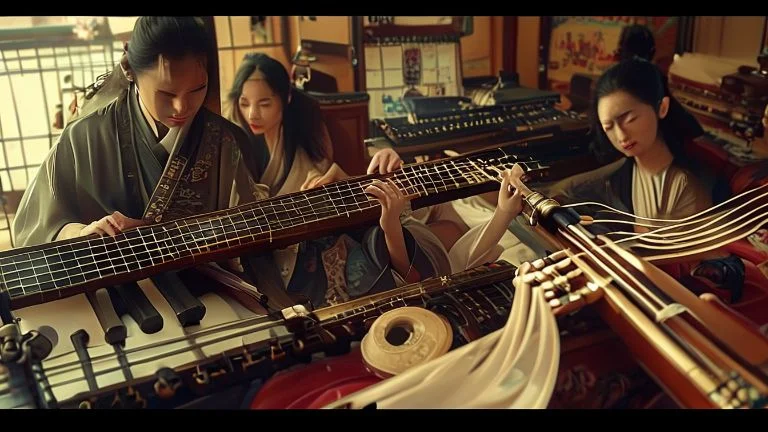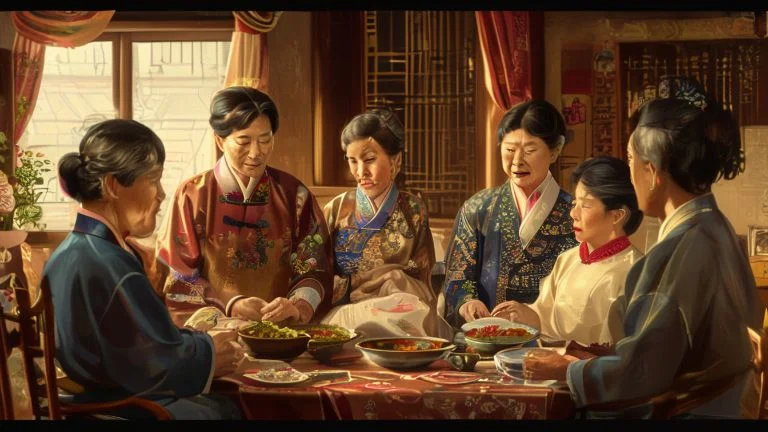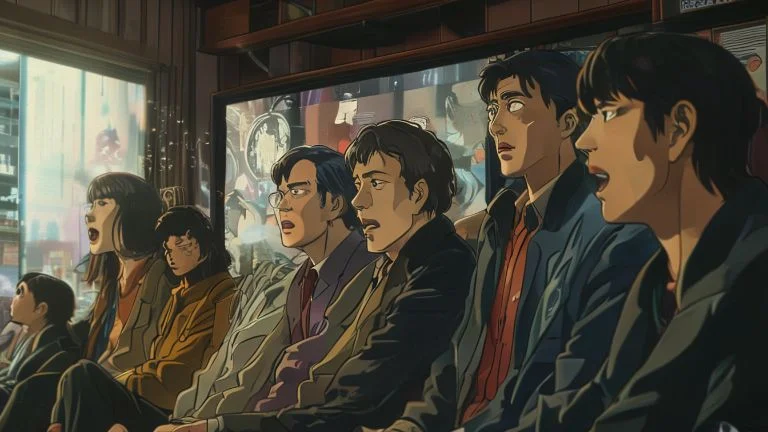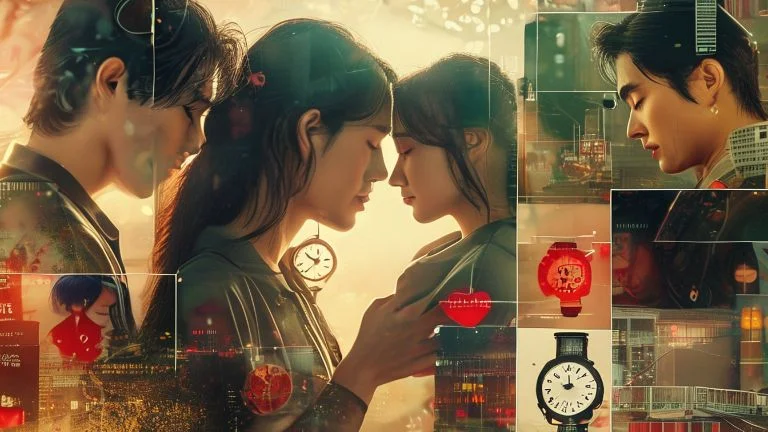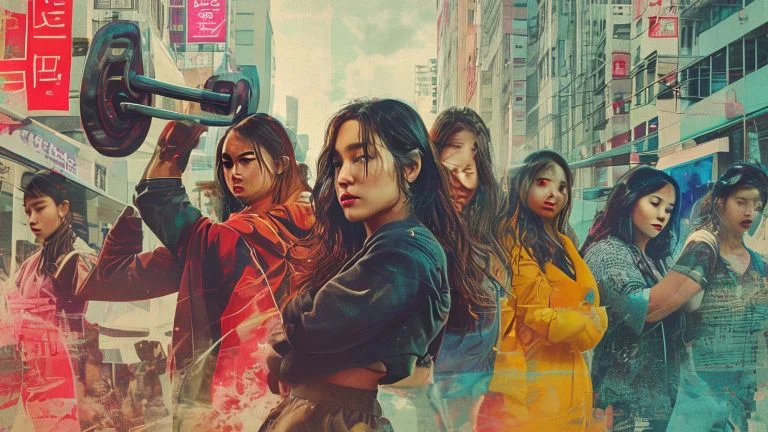Understanding Unexpected Friendships in Dorama Series
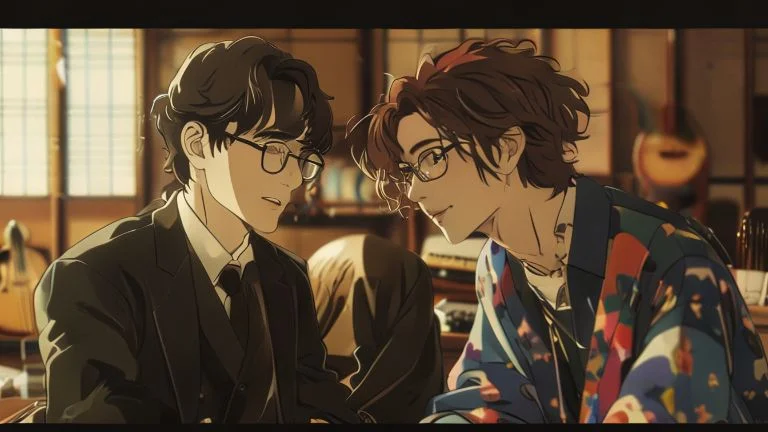
The portrayal of unexpected friendships in Dorama series presents an intricate exploration of human relationships, showcasing the complexities, nuances, and multifaceted development of bonds that transcend conventional boundaries. Unlike traditional friendship narratives that often arise from shared backgrounds or common interests, Doramas frequently highlight relationships forged through adversity, stark personality differences, or contrasting social standings. Such narratives not only enrich character development but also deeply engage viewers by reflecting realistic social dynamics beyond surface-level interactions.
In the diverse landscape of Japanese television dramas, or Doramas, the theme of friendship often functions as a catalyst for emotional growth and plot advancement. Unexpected friendships become a narrative device that challenges stereotypes, confronts social barriers, and offers fresh perspectives on companionship. These portrayals emphasize empathy, understanding, and transformation, inviting the audience to witness characters evolving from distrust or ignorance into genuine connection.
The concept of unexpected friendships in Doramas is not merely about chance encounters but a deliberate storytelling technique that allows creators to explore themes of forgiveness, personal growth, and societal critique. This exploration extends beyond simple friendship; it often incorporates elements of mentorship, reconciliation, and community, highlighting how disparate individuals can find common ground despite their differences in age, status, or personality.
Such portrayal resonates particularly within Japanese culture, where social harmony and group conformity are traditionally emphasized. The depiction of friendships that arise from unlikely situations serves as a subtle commentary on the value of individuality and acceptance in a collective society. Consequently, these narratives garner attention not only domestically but internationally, as viewers find universal appeal in stories that challenge their assumptions about connection and belonging.
Key Characteristics of Unexpected Friendships in Dorama Series
The unexpected friendships depicted in Dorama series commonly exhibit distinctive characteristics that set them apart from typical relationship arcs. Analyzing these features reveals the depth and complexity with which these dramas construct interpersonal dynamics:
- Contrasting Personal Backgrounds: Often, the friends come from vastly different social, economic, or cultural environments. This contrast plays a pivotal role in creating dramatic tension and opportunities for mutual growth.
- Initial Conflict or Distrust: Many narratives begin with rivalry, misunderstanding, or even hostility between potential friends, positioning the friendship as a gradual development rather than an instantaneous bond.
- Mutual Dependence and Support: Despite differences, the characters find themselves in situations where they rely on each other, fostering a reluctant yet evolving companionship.
- Transformation Through Compassion: The relationship serves as a vehicle for character transformation, where empathy and kindness lead to personal revelations and change.
- Breaking Social Norms: These friendships frequently challenge societal expectations, such as age gaps, gender roles, or class distinctions, presenting a progressive outlook on human connections.
The nuanced depiction of these traits functions to humanize the characters involved, allowing the audience to experience an emotional journey from estrangement to intimacy. This complexity also adds layers to the narrative, making these friendships memorable and impactful.
Notable Examples of Unexpected Friendships in Popular Dorama Series
Multiple Dorama series have delved extensively into the theme of unexpected friendships with varying narrative devices and contexts. The following examples illustrate different facets of such relationships in Japanese television drama:
1. "Nodame Cantabile" (2006): This series explores the friendship between Shinichi Chiaki, a perfectionist and disciplined classical musician, and Megumi Noda (Nodame), a free-spirited, somewhat clumsy pianist. Their personalities clash initially, with Chiaki’s strictness contrasting Nodame’s chaotic creativity. Despite these differences and initial frustrations, their friendship evolves through shared passion for music, mutual respect, and emotional support.
2. "Gokusen" (2002): Yamaguchi Kumiko, a young teacher from a Yakuza family background, unexpectedly builds strong friendships with her delinquent students. Despite social stereotypes and her tough upbringing, Kumiko’s dedication and sincerity foster trust, transforming antagonistic attitudes into solidarity and mutual care.
3. "My Boss My Hero" (2006): The relationship between a Yakuza heir pretending to be a high school student and genuine schoolmates reveals unexpected bonds that underscore themes of identity and acceptance. Friends come from vastly different worlds but manage to connect on shared values despite initial suspicion.
Each of these examples demonstrates how varied contexts—whether music, education, or crime—allow for the exploration of friendships that defy conventional logic, emphasizing human connection over social expectation.
Thematic Implications of Unexpected Friendships in Dorama Narratives
Unexpected friendships in Doramas frequently carry thematic weight that extends beyond personal stories to touch on broader societal and psychological ideas. These themes often include:
- Social Barriers and Prejudice: By presenting friendships between individuals from conflicting social groups, such as different classes or backgrounds, the series critiques societal divisions and encourages viewers to reconsider biases.
- Individuality Versus Group Dynamics: In a culture traditionally emphasizing group conformity, these friendships highlight the importance of individual differences and acceptance, symbolizing resistance to rigid social constraints.
- Healing and Emotional Growth: The narrative arc often showcases how friendships serve as a healing force, enabling characters to overcome trauma, loneliness, or personal challenges.
- Intergenerational Relations: Many Doramas depict friendships crossing age groups, showing how experience and youth can complement each other, fostering wisdom and vitality simultaneously.
- Empathy and Understanding: The development of friendship frequently hinges on the willingness to empathize across differences, demonstrating the power of perspective-taking in human relationships.
Through these themes, unexpected friendships act as narrative lenses to explore complex human emotions and social issues, ultimately enhancing the viewer’s emotional investment and intellectual engagement with the story.
Framework of Development: How Dorama Series Construct Unexpected Friendships
The construction of unexpected friendships within Dorama series typically follows a deliberate progression, structured to maximize dramatic impact and emotional resonance. Understanding this framework offers insight into the storytelling techniques and character development strategies employed:
Initial Encounter and Conflict: Characters meet under circumstances fraught with misunderstanding or antagonism. This stage establishes the tension and lays the groundwork for subsequent growth.
Incremental Cooperation: Situations arise that require collaboration despite initial reluctance, encouraging characters to recognize shared goals or vulnerabilities.
Mutual Exposure: As cooperation deepens, characters share personal stories, weaknesses, or dreams. This exposure humanizes each character and breaks down preconceived notions.
Support and Sacrifice: The friendship solidifies when characters demonstrate commitment, offering support or making sacrifices that affirm the bond’s importance.
Transformation and Solidarity: The arc culminates in mutual transformation—characters evolve emotionally or morally, reinforced by the trust and loyalty established.
This staged progress permits narratives to evoke authenticity and emotional depth, allowing audiences to witness believable evolution rather than superficial change. It also enables the dramatization of challenges inherent in forming genuine connections under adverse or unexpected conditions.
Comparative Table: Features Across Different Dorama Series Portraying Unexpected Friendships
| Dorama | Context | Nature of Friendship | Central Conflict | Outcome |
|---|---|---|---|---|
| Nodame Cantabile | Classical Music School | Artistically Opposed Yet Emotionally Connected | Personality Clashes and Rigid Expectations | Mutual Growth and Romantic Development |
| Gokusen | High School with Delinquent Students | Teacher-Student Bond Surpassing Social Prejudice | Social Stigma and Delinquency | Respect, Trust, and Social Acceptance |
| My Boss My Hero | High School/Criminal Underworld | Identity Duality and Genuine Peer Relationships | Pretense and Cultural Divide | Acceptance and Self-Discovery |
| Ossan’s Love | Office and Personal Space | Friendship Developing into Awareness of Deeper Feelings | Generational Differences and Personal Inhibitions | Understanding and Emotional Clarity |
| Grand Maison Tokyo | High-End Culinary Competition | Peers from Rival Backgrounds Building Trust | Professional Rivalry and Personal Trauma | Team Cohesion and Professional Redemption |
Impact on Audience and Cultural Influence of These Portrayals
The depiction of unexpected friendships in Dorama series resonates profoundly with audiences, influencing societal perspectives and fostering emotional connection. These dramas offer viewers points of identification, comfort, and inspiration, often encouraging re-evaluation of their personal relationships and social views.
Emotional Engagement: Audiences are drawn to the authenticity and vulnerability portrayed, fostering empathy and emotional investment. Viewers often express increased appreciation for diversity in friendships and the value of openness to unlikely bonds.
Cultural Exchange: As Doramas reach international viewers, the theme of unexpected friendship transcends cultural boundaries, highlighting shared human experiences. This fosters cross-cultural understanding and appreciation.
Social Commentary: By showcasing relationships that defy common societal norms, these dramas subtly critique rigid social hierarchies, promoting inclusivity and acceptance. The impact extends to real-life social attitudes, encouraging openness to difference and reduction of prejudice.
Inspiration for Real-Life Relationships: Many viewers report applying lessons learned from Dorama friendships to their lives, embracing diversity and seeking connection beyond conventional boundaries. The narratives provide frameworks for negotiating complex interpersonal dynamics.
Step-by-Step Guide to Analyzing Unexpected Friendships in Dorama Series
- Identify the Initial Conditions: Examine the characters' backgrounds, social contexts, and the state of their relationship at the series’ outset.
- Observe Conflict and Barriers: Note sources of tension, misunderstanding, or prejudice that create obstacles in forming the friendship.
- Trace the Developmental Steps: Follow key moments that promote cooperation, vulnerability, and empathy between characters.
- Analyze Emotional and Psychological Shifts: Observe changes in attitudes, growth in understanding, or transformation of perspectives.
- Interpret Thematic Messages: Connect the friendship to broader social themes such as inclusivity, healing, or challenging norms.
- Evaluate Resolution and Impact: Consider how the friendship concludes or stabilizes, and its effect on character arcs and overall narrative.
Benefits of Depicting Unexpected Friendships in Dorama
Including unexpected friendships within Dorama storylines offers several benefits for both creators and audiences:
- Enhanced Narrative Depth: Complex relationships add layers to the story, making it richer and more engaging.
- Character Complexity: Such relationships reveal multiple facets of characters, showcasing growth and diverse emotional responses.
- Broadened Audience Appeal: The universal nature of unlikely friendships increases relatability across demographics.
- Positive Social Influence: Portrayals can inspire viewers to embrace diversity and reduce prejudices.
- Emotional Catharsis: Witnessing characters overcome barriers provides cathartic emotional experiences.
These benefits solidify the importance of unexpected friendships as a dramatic tool, contributing to the longevity and critical acclaim of many Doramas.
Challenges in Portraying Unexpected Friendships Realistically
Although narratively compelling, depicting unexpected friendships authentically involves overcoming several challenges:
- Avoiding Clichés: Writers must prevent friendships from appearing forced or predictable, ensuring organic development.
- Balancing Drama and Realism: Excessive dramatization risks alienating viewers; subtlety is necessary for believability.
- Representing Cultural Nuances: Accurate depiction of social constructs and relationships within the Japanese context requires sensitivity.
- Addressing Power Dynamics: Disparities in age, class, or authority need thoughtful portrayal to avoid unrealistic equality or harmful stereotypes.
- Maintaining Character Consistency: Friendships should evolve logically without compromising established character traits.
Applying Lessons from Dorama Friendships to Real Life
Beyond entertainment, Dorama depictions of unexpected friendships offer practical insights for real-world relationship-building. Extracting lessons from these narratives can improve social interactions and foster more inclusive communities.
Embrace Diversity: Actively seeking friendships with those outside customary social circles enriches perspectives and empathy.
Practice Patience and Openness: Trust and understanding often require time and willingness to look beyond initial differences.
Engage in Vulnerability: Sharing personal stories and admitting weaknesses builds authentic connections.
Challenge Stereotypes: Recognize and question preconceived notions about others, enabling deeper relationships.
Support and Sacrifice: Demonstrate loyalty and care, reinforcing friendship through action as much as words.
Incorporating these approaches reflects the narrative arcs shown in Dorama series, highlighting the universal relevance of their storytelling.
Summary Table: Key Steps for Fostering Unexpected Friendships
| Step | Action | Effect on Relationship |
|---|---|---|
| 1 | Initiate Contact Despite Differences | Breaks Barriers, Opens Dialogue |
| 2 | Find Shared Interests or Goals | Creates Common Ground |
| 3 | Show Willingness to Understand | Builds Trust |
| 4 | Practice Empathy in Conflicts | Reduces Misunderstandings |
| 5 | Offer Support Without Expectation | Strengthens Bond |
| 6 | Maintain Consistent Communication | Ensures Longevity |
Psychological Underpinnings of Unexpected Friendships Shown in Doramas
The realistic portrayal of friendships that develop unexpectedly in Doramas often reflects psychological principles related to human bonding, social cognition, and emotional development. These underpin the authenticity and relatability of the narratives:
Attachment Theory: Characters may begin with insecure or avoidant attachment styles, gradually learning to trust through positive interactions, mirroring real psychological processes.
Social Identity Theory: Characters from different social groups experience conflict and eventual integration by expanding their in-group perceptions to include the other, highlighting identity flexibility.
Cognitive Dissonance: Initial prejudices are challenged, causing discomfort that is resolved when individuals adjust attitudes to align with new friendly experiences, facilitating change.
Empathy and Theory of Mind: Friendships deepen as characters develop the capacity to understand and share the feelings of others, promoting cooperation and reducing judgment.
The integration of these psychological concepts ensures that the friendships feel genuine and the evolution believable, contributing to the emotional effectiveness of the Dorama narratives.
Cross-Cultural Reception and Adaptations of Unexpected Friendships in Doramas
The international popularity of Dorama series has led to cross-cultural reception and adaptation of their themes, especially regarding unexpected friendships. Different cultures interpret and relate to these portrayals uniquely, adding layers to their appreciation and influence.
In East Asian regions such as Korea, China, and Taiwan, Doramas inspire local series that incorporate analogous friendship narratives, often adapting cultural specifics while maintaining the core emotional arcs. Western audiences encountering Doramas through streaming platforms engage with these stories as windows into Japanese societal values, relating the unexpected friendships to universal experiences of social complexity.
Moreover, the export of Doramas has influenced creative trends globally, encouraging storytellers to explore friendship dynamics outside conventional molds. This has led to analogous series that depict cross-social and cross-cultural connections as central themes, expanding the narrative scope of friendship on television worldwide.
List of Practical Tips for Writers Depicting Unexpected Friendships in Drama
- Develop multi-layered characters with clear motivations and flaws.
- Introduce conflict early to establish tension and interest.
- Use gradual trust-building moments rather than sudden shifts.
- Incorporate cultural details that ground the friendship in realism.
- Balance humor and conflict to maintain engagement without undermining seriousness.
- Ensure consistency in character reactions to preserve credibility.
- Explore the impact of friendship on multiple facets of characters’ lives.
- Employ secondary characters to reflect and challenge the friendship dynamic.
Real-World Applications of Unexpected Friendships Themes Beyond Television
The themes and dynamics of unexpected friendships depicted in Dorama series find resonance in various real-world domains, including education, workplace environments, and community building.
In educational settings, encouraging interactions among diverse student populations fosters empathy and reduces bullying, similar to narratives where teachers and misfit students form bonds. Workplaces benefit from promoting collaboration across hierarchical or departmental divides, aligning with stories about colleagues overcoming social or professional barriers. Communities and social organizations aim to build inclusive spaces where unlikely friendships can flourish, reflecting themes of social integration illustrated in these dramas.
These real-world applications reinforce the practical significance of the narrative forms seen in Doramas, underscoring storytelling's role in shaping social attitudes and behaviors beyond entertainment.
Summary and Predictive Trends in Depicting Unexpected Friendships in Future Doramas
Looking ahead, Doramas are likely to continue exploring unexpected friendships with increased complexity, integrating contemporary social issues such as digital connectivity, mental health awareness, and global diversity. The evolving media landscape and changing audience expectations encourage nuanced portrayals that include more diverse identities and intersectional experiences.
As streaming platforms broaden access, international collaboration might influence how these friendships are depicted, incorporating multicultural elements and hybrid narrative styles. Writers may experiment with nonlinear timelines, character-driven perspectives, and interactive storytelling to deepen audience engagement with friendship themes.
Ultimately, the enduring appeal of unexpected friendships in Doramas lies in their capacity to reflect the unpredictable, enriching nature of human relationships. Future series will likely expand on this foundation, offering even more authentic and inspiring explorations of connection.
FAQ - Unexpected Friendships Depicted in Dorama Series
What defines an 'unexpected friendship' in Dorama series?
An unexpected friendship in Dorama series typically involves two characters forming a close bond despite significant differences in personality, social status, or initial conflict, often overcoming prejudices or barriers that would normally keep them apart.
Why are unexpected friendships commonly portrayed in Japanese Doramas?
These friendships serve as a dramatic tool to explore themes of empathy, social division, personal growth, and societal critique. They challenge cultural norms emphasizing conformity, highlighting individuality and acceptance.
Can you give examples of Dorama series that feature unexpected friendships?
Notable examples include 'Nodame Cantabile' which features contrasting musicians connecting, 'Gokusen' where a teacher from a Yakuza background befriends delinquent students, and 'My Boss My Hero' depicting a Yakuza heir navigating school friendships.
How do unexpected friendships influence character development in these series?
Such friendships catalyze emotional and moral growth by challenging characters’ stereotypes and encouraging vulnerability, trust, and empathy, leading to transformation in their behavior and outlook.
What lessons can viewers learn from unexpected friendships in Doramas?
Viewers can learn the value of embracing diversity, practicing empathy, patience, openness to differences, and the importance of mutual support in forming meaningful relationships.
Unexpected friendships depicted in Dorama series showcase bonds formed across social and personal differences, reflecting themes of empathy, growth, and societal critique. These narratives highlight the transformative power of unlikely connections, enriching character development and resonating widely with viewers seeking authentic, complex portrayals of human relationships.
Unexpected friendships in Dorama series illuminate the complexity and richness of human connection, transcending social categories and initial judgments. These narratives adeptly showcase the transformation that occurs when individuals embrace difference and vulnerability, fostering empathy and mutual growth. Their influence extends beyond entertainment, offering valuable insights into social dynamics, cultural norms, and personal development. By weaving these friendships into compelling storylines, Doramas continue to engage audiences emotionally and intellectually, reinforcing the universal importance of connection beyond boundaries.

